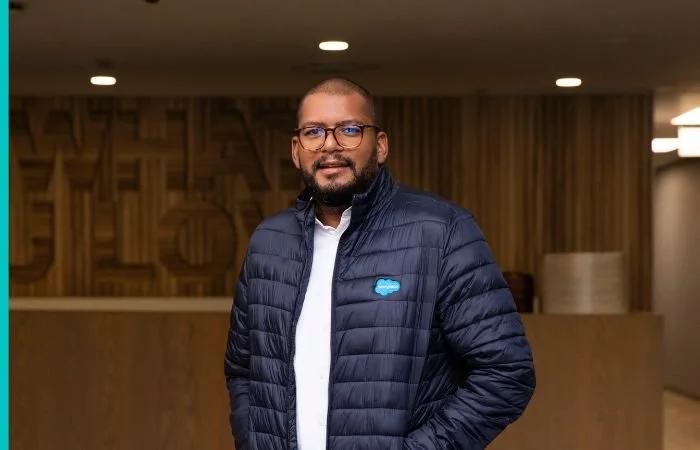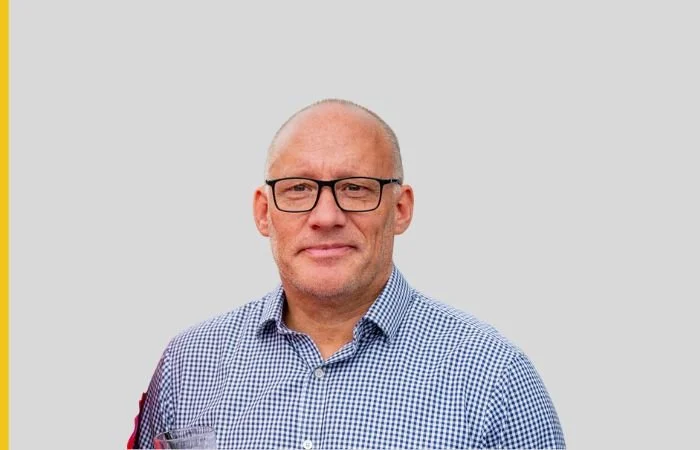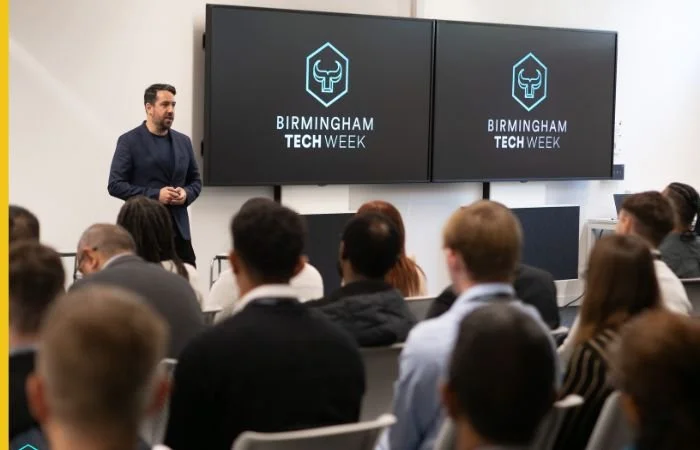Have the new iPhones proved we’ve passed peak innovation?

When the new iPhones were unveiled on 12 September, the presses stopped in anticipation of a moment like those Steve Jobs used to deliver, long ago, when a new Apple product meant a new way of life; a change in the order of society, culture, and commerce.
This was not that.
Sure, people got very excited about the host of flashy new gimmicks on offer, but for the most part gimmicks they remain. Whether I unlock my phone with a code or with facial recognition, the difference is marginal. Whether an emoji copies my expression or I choose an expression from a menu the message I’m sending is the same. And whether an AR engine is built directly into my phone or imported on an app, its utility remains as limited as it ever has done (revisit the hysteria following Pokemon Go if you don't agree with that one).
What’s missing here is innovation. By which I mean real innovation, the kind that changes people’s lives and society at large, the way the original iPhone did back in 2007. We’re constantly told that we’re living in an age of unstoppable technological progress, but if we compare that watershed moment to the news yesterday we might question that. It feels more like we hit a plateau 10 years ago, and have merely tinkered ever since. It’s like the TV. When that first emerged it was a Big Deal. But since then its fundamentals remain the same - making it bigger, thinner, and with more channels hasn’t changed that. We now deal in better, not different. A bold new dawn is always around the corner we’re told, be it in the form of wearables, AI, biotech, you name it. And yet still we wait.
This smells an awful lot like the fallacy people fell for in the 1950s, where they too made the mistake of believing that the radical progress of the previous decade would inevitably continue at the same pace into the future. But progress doesn’t work like that. It comes in fits and starts, and sometimes you sit through long periods without much happening at all. And despite it sounding ridiculous amid the breathless utopian predictions we hear every day, we could be entering such a period now.
Why might we think this?
Naturally we face practical limitations, like those that saw Moore’s Law unexpectedly shudder to a halt in 2016. But more limiting than that, believe it or not, is marketing. Quite simply we reach a point where something is “good enough”, and you just can’t sell the next generation, even if it’s technically possible.
Think about window blinds. In 1950s visions of the future, it went without saying that in 2017 all window blinds would be controlled with a remote. That would be the inevitable zenith of window blind technology. But how many remote-powered window blinds have you ever seen? Certainly they exist, and have been possible for more than 40 years. But they never really caught on. Why? Because they’re pointless.
Fundamentally the analog window blinds tech – developed much longer ago – is “good enough”. That neat system where you pull the string one way and it moves, the other way and it sticks? That’s as advanced as things really need to be us. Any fancier and the juice isn’t worth the squeeze; the market won’t support it. We are satisfied, and anything more would be dismissed as gimmick.
This is exactly what’s happening with smartphones. The “satisfaction threshold” was hit by the original iPhone, and since then we deal only in gimmicks. Nothing changes its fundamentals: a pocketable device that allows us to access information on demand wherever we are. How do you improve on that in a game-changing way?
Google tried with Glass, others tried with smart watches, but none of these innovations have really stuck because they all offered only marginal benefits. The difference between accessing internet on-the-go versus not was huge; but being able to have that information laid over my eyes versus having to reach into my pocket for it? Meh. It’s like remote control blinds. I get that it’s a step forward, but not such a big one I’m prepared to change my behaviour for it.
Thus we should ask the question: how many of these other innovations that we’re getting exciting about - on this new iPhone or otherwise - might fail this test?
Of course some would be genuinely revolutionary. True AI for instance. However the catch with many such innovations is that we have to get there first. And that often requires the market to want not only want the dream, but also all the intermediary steps in-between.
People no doubt thought Concorde was merely a step along an inevitable path to 20-minute transatlantic crossings. But they had to want Concorde first. They didn’t, and so that dream disappeared, with air travel speeds seemingly destined to remain at one level forever. Is Siri - on paper bigger news than any of the latest iPhone updates - merely the Concorde of AI?
Ultimately these are the tests any innovation has to pass to deliver real change: the electric blind test and the Concorde test. Is the benefit 10 times bigger than the status quo? Or is it just a tweak? Nobody shakes up their life to save two seconds. And can you deliver a big win immediately? Or are you going to try and make the public patronise poor value beta versions in the hope of something worthwhile years down the line?
Using this model, it’s clear why things like the iPhone, Airbnb, Uber, and I guess fundamentally “the internet” caught on. They changed the game, and were easy to sell pretty much from version one.
How many other recent “innovations” can say that? We may find the future is a more familiar place than we’re expecting….
Five sustainable gaming companies that provide great inspiration to startups wanting to do good in the world.
From 31 January, businesses moving goods from the European Union (EU) to Great Britain (GB) will need to comply with new UK safety and security declaration requirements.
Its simplicity has made transitioning from traditional tobacco to vaping a breeze for many.
Bitcoin, the digital currency conceived in 2009 by the mysterious Satoshi Nakamoto, is a financial phenomenon. Despite the volatility of global markets, it has demonstrated remarkable resilience.
From university students and young entrepreneurs to senior executives, imposter syndrome remains a common thread in everyone’s personal career journey.
It was more of a gut feeling that led us to the intersection of digitalisation, mobiles and the democratisation of payments. Paynetics felt strongly about making moving and managing money right for everyone and started building a platform that covers it all.
I’m Simon Goodman and I started out in PR, where I was introduced to the noble Choc Ice working on the Cadburys account. At the time they were looking to upgrade the humble choc ice.
In 2017, Matt launched Borrow A Boat, aka the ‘Airbnb’ of boats, making waves in the charter industry by offering a modern marketplace solution with the aim of making boating more accessible, affordable, flexible and inclusive for all.
Founded in 2021 by Alisa Patotsakaya, Immersive Fox is a text-to-video generation startup that specialises in providing businesses with AI-generated videos for sales and customer communication.
Samantha Gilchrist, co-founder and CEO of The Gilchrist Collection, shares her life as an entrepreneur.
Co-founded by Conrad Poulson in 2014, Huq has been at the forefront of utilising cutting- edge technologies and innovative mobility research methods.
Going from employee to founder was a huge leap of faith. I announced the agency just a few days after turning 26 and like most 26-year-olds, I hadn’t ever owned or run a business before.
Patchwork Health was co-founded by Dr Anas Nader and Dr Jing Ouyang with the mission to make truly flexible and sustainable working a reality for all healthcare staff, amid the current workforce crisis.
After a lifetime working as a project manager for some of the world’s largest tech companies, Jeb Buckler set up Startup Giants PLC to ensure that no good tech concepts should go to waste.
So, I encouraged Ben to officially incorporate The Handbag Clinic as its own independent luxury handbag offshoot in 2013 – all still operated through our ecommerce platform at the time.
I’m Diana Babics, founder of Nourish Awards. I began in finance (accounts and auditing) before deciding this simply wasn’t for me. I then headed off to university as a mature student, initially to study art and design and latterly interior architecture.
greenworkx is co-founded by two education sector workers, Mat llic and Richard Ng, who are passionate about the planet and believe reskilling and upskilling UK workers into green jobs is future-proofing the economy.
Blaise Hope, founder and CEO of Origin Hope, brings two decades of media experience to his groundbreaking content partnership venture.
Co-founded by Nisha Ramisetty and Sam Williams, the idea for Naksha was born in 2020 when cooking became an escape during lockdown.
Charlene Hurlock was inspired by her daughter and her best friend who independently started swapping their pre-loved clothes. Aside from being a Mum, Charlene's background is predominately in global exhibition sales and media advertising.
In North America, Iced Teas (Coldbrew) is a bustling £2bn marketplace. Yet, in the UK, despite being the second fastest-growing soft drink sub-category (after cold brew coffee), there is still a lack of appreciation for brands like Kaytea.
I’m Melissa Gauge, founder of SpareMyTime. I left my corporate role in 2016 to set up a City-based business with a couple of partners and another business by myself, an online platform.
Founded in 2006 by Amelia Peckham and Clare Braddel, Cool Crutches & Walking Sticks aims to empower those who need support to walk.
I’m Gerry Lianos - the co-founder of Raffolux, an online raffling platform that gives people the chance to win amazing prizes for a low cost and support charities close to their hearts.
Jason Tim is the CEO and co-founder of CloudSmiths and has been CEO for the past two years. Prior to this, he held previous roles at the company such as Managing Director and Sales Director.
My name is Lucy Bramley and I'm the founder of Ruched & Ready, one of the UK's leading size inclusive fashion labels helping women embrace their curves and feel confident.
KBF Enterprises was established in 2008 by Managing Director, Kieran Fisher and is the business behind two of the most recognised sports nutrition brands in the UK – Bodybuilding Warehouse® and Warrior®.
Matt Cater is co-founder of Clix Technologies, an innovative new company that offers the UK’s only mobile-first, fully customisable, Web App-based smart lockers.
Ben Maruthappu is a London-based doctor and CEO of Cera, a multi-award winning digital-first home healthcare company, which has grown 100-fold in the past three years, now delivering over 50,000 patient appointments a day.
The Natural Love Company was founded by friends and wedding photographers Ben Foster and Barney Walters. The Cornwall-based business was launched as a result of their previous careers being put on halt by the pandemic.
As the CEO of Botify, Adrien has had both a global and notable career, co-founding Botify back in 2012 and thereafter relocating to the United States from France. Adrien is passionate about shifting the organic search marketing landscape.
Sançar has spent years leading marketing teams at high-profile startups, including Typeform and Hotjar. Early in his career, he struggled to set work-life boundaries and lacked a clear understanding of his personal wellbeing needs and values.
Co-founded by Mike Robertson and Adrian Brown, AbbeyCross is the world’s first B2B trading and compliance marketplace, focused on improving underlying market infrastructure for Emerging Market (“EM”) currencies.
My name is Derk Roodhuyzen de Vries and I am the CEO and co-founder of Fixico. Alongside my business partner Mark van Laar, we created Fixico back in 2014 to revolutionise the car repair industry.
Linkup was founded by the two Manchester-based entrepreneurs, Jack Peagam and Ben Whatson, as they aim to step away from ‘traditional' career paths and combine their shared passion for creativity with business.
Emilie Vallauri is a 27-year-old program manager at Techstars with a passion for innovation. Born and raised in Nice, France, Emilie studied business and political sciences before embarking on a career punctuated by innovation and supporting startups.
Zsuzsa has been instrumental in growing Antavo from a startup to a scaleup. As Chief Strategy Officer and co-founder, she is transforming the company into a unique loyalty technology vendor, offering a next-gen, best-in-class solution to the loyalty sector.
Software engineering and product development is my specialisation - and I have had a wide range of experience across the industry. I had a brilliant 22-year long career at IBM, working across a number of roles, which I really loved.
Holly Zoccolan is an entrepreneur and Founder of new parenting app, Carol. Before Founding Carol and entering the tech space, Holly built successful online wellness brand The Health Zoc in 2016.
Anna Gudmundson is the CEO and co-founder of Sensate, a device that emits infrasonic waves that are synchronised to resonate with the specially composed hemispheric audio in the app.
Rebecca is Senior Vice President of Clients, Partnership and Creative Transformation at CreativeX, provider of an industry-first AI driven data platform to help the world’s most loved brands including PepsiCo, Nestle and Facebook achieve creative excellence.
With this investment, Uvionix will accelerate its product release and expand its market presence across the US and Europe.
The company's technology will have innovative applications in infant nutrition, cosmetic and dermatological, and cognitive industries.
This funding will accelerate Mulder’s mission to tackle the transparency and compliance challenges that complicate the medical device supply chain.
Tangible, a software platform for decarbonizing construction has raised $3 million in a funding round co-led by Prologis Ventures and Pi Labs. Additional investors include Foundamental, Silence VC, and RE Angels.
DBLX, led by CEO and Co-Founder Nicky Hoyland, collaborates with global enterprises to enhance their people experiences. The company’s offerings include immersive digital content, bespoke platform development, and strategic consulting services.
Apheris, the leading federated computing company powering data networks for the life sciences sector, today announced the completion of a Series A funding round, bringing total funding to date to $20.8 million.
Co-investors on deals during 2024 included Investment Fund for Scotland (managed by Maven Capital), Scottish National Investment Bank, Old College Capital, Scottish Enterprise, Par Equity, Mercia and various Scottish angel syndicates.
This funding will propel Criterion Capital's vision of redefining hospitality with its sleep-centric, design-forward hotel concept.
The theme of this year’s BBBAwards is #NEXT. Now in its 11th year, the BBBAwards is marking a new decade of celebration of the outstanding achievements of Black professionals and entrepreneurs in the UK.
Aistetic, a groundbreaking Oxford University AI spinout, has proudly announced its participation in the Techstars Future of Ecommerce Accelerator powered by eBay, a highly competitive program designed to help shape ecommerce.
An alarming new study of workplace leaders describes an environment of unconscious fear in modern-day leadership, leading to toxic culture, stunted growth, performance and productivity, and decision inertia.
Mambu, a leading Software as a Service (SaaS) cloud banking platform, today announced it is now available in AWS Marketplace, making it one of the first core banking providers on the site.
Bengalis have been rewarded and acknowledged for their substantial contribution to healthcare, finance, politics, education and the arts.
Retail PR will be working with COOK in the lead up to Christmas, helping to support their PR objectives throughout the golden quarter.
A new cohort of six GeoTech and PropTech start-ups has just been selected to start on its Accelerator Programme.
In 2020, data confirmed that there are 1,223,850 tonnes of waste disposed in the ocean, with future predictions standing at a rise of 60% by 2030, 147.4% by 2040 and 274% by 2050.
A growing social enterprise supported by a global network, Impact Hub London Euston at Regent’s Place will offer under-served local communities affordable workspace and tailored business support, as well as arranging impactful engagement activities throughout Camden.
Phil Race appointed as Chief Executive as Jim Darragh steps down after seven successful years of leadership.
Appointment of product management leader, Phillip Burr, to bring Lumai’s game-changing AI technology to market across all regions.
New data released from Tech Climbers has revealed how Greater Manchester’s tech sector continues to thrive, as companies plan to attract millions in investment.
Appointments of Joel Cardenas as the new Head of Business Development for Latin America, and Ard Crebas as the new Head of Business Development for North America and the Caribbean.
Fastest growing modern-day learning management system, Thrive Learning, has announced a number of new appointments within the team as part of their ambitious growth plans.
Ai Build, the Additive Manufacturing (AM, also known as 3D printing) software company, has raised a Series A round of $8.5 million led by IQ Capital.
The Board of Arbuthnot Banking Group PLC ("Arbuthnot", the "Company" or the "Group") provides the following update regarding the trading performance of the Group for the three months to 30 September 2023.
The partnership enables service providers worldwide to access the UK network footprint with location-based intelligence and automated and standardised quoting.
EDHEC Business School and Ring Capital are proud to announce the creation of GENERATIONS Powered by EDHEC, an impact seed fund for socially- and environmentally-responsible startups.
Birmingham Tech Week 2023 is set to be the biggest in the event’s four-year history, with 7,500 people estimated to attend across five days.
John joins Arbuthnot Latham from Hampden & Co plc, where he was a Business Development Director and built strategic partnerships with private client advisors.
Sodexo Engage, the leading expert in employee engagement, today announces the launch and UK implementation of its new brand, Pluxee.
The company, founded by tech industry veteran Tom Dunning, has also seen its headcount jump from 15 to 26 full-time staff, with plans for additional key hires in the next year.





































































































